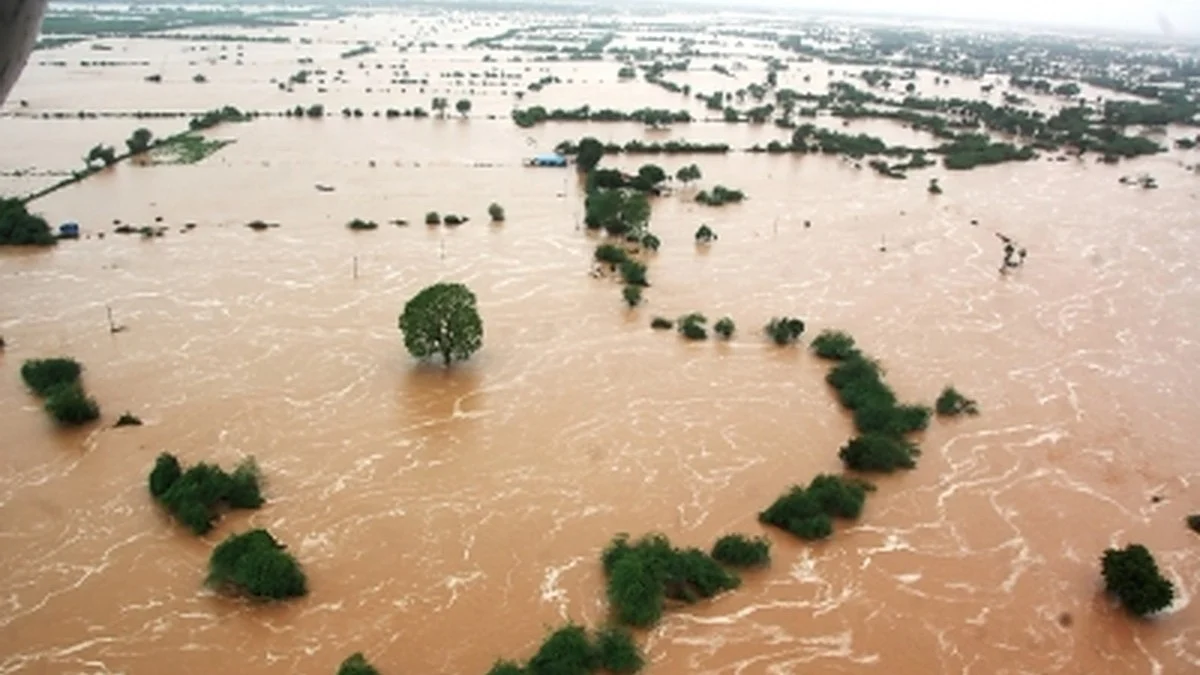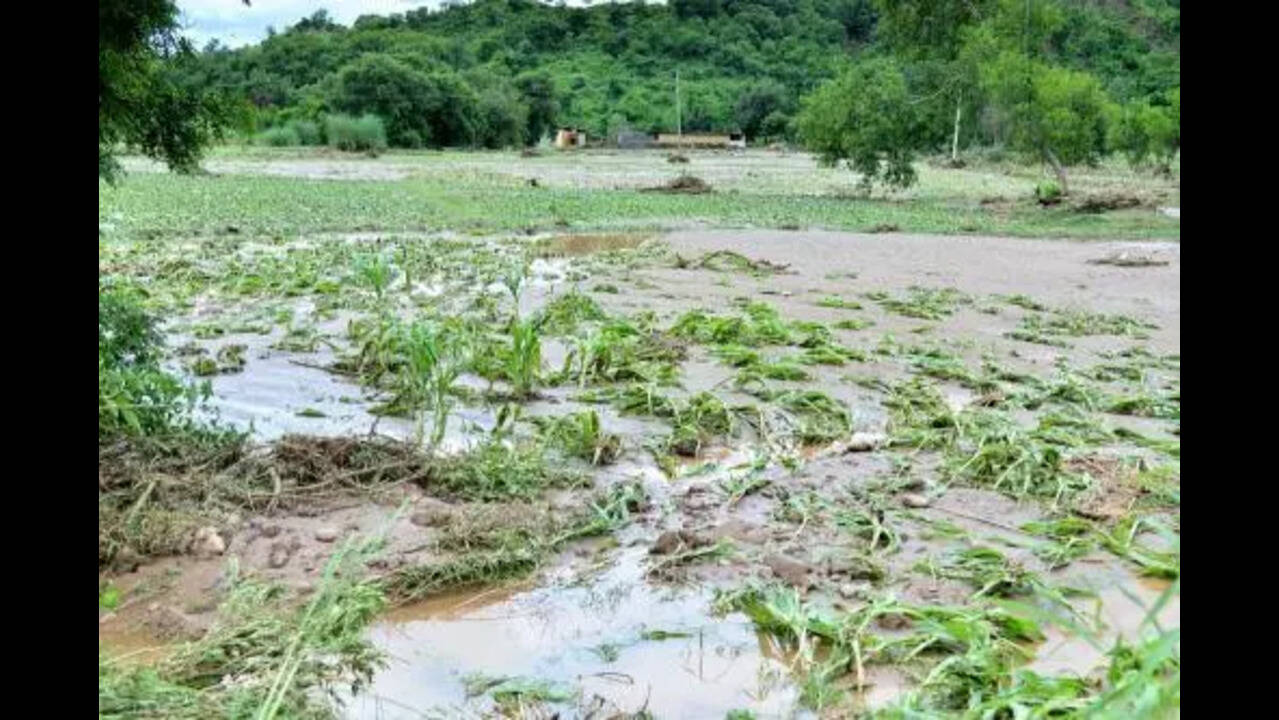The Karnataka government has announced a special relief package of ₹1,033.60 crore for farmers affected by recent floods, aiming to provide immediate financial assistance and support rehabilitation efforts. The package, unveiled by the Agriculture Minister, covers crop losses, damaged infrastructure, and compensation for affected farmers across several districts. Officials highlighted that the initiative is part of the state’s broader strategy to mitigate the impact of natural disasters, ensure food security, and support the rural economy. Authorities emphasised that the package will be disbursed promptly to help farmers resume agricultural activities.
The relief package includes direct financial aid to farmers whose crops were damaged, support for replanting, and subsidies for agricultural inputs such as seeds, fertilizers, and equipment. Officials said that assessments of crop loss will be conducted by district-level committees, which will also oversee the distribution of funds. Farmers in the most severely affected areas are expected to receive priority under the scheme, with disbursement timelines set to minimise delays. The package is designed to help farmers recover quickly and sustain livelihoods amidst challenging climatic conditions.
The government clarified that the package also includes support for repair and restoration of damaged farm infrastructure, including irrigation systems, pumps, and storage facilities. Rural roads and farm access routes affected by flooding will be prioritised for repair to ensure smooth transportation of agricultural produce. Officials said that the package aims not only to provide immediate relief but also to strengthen resilience against future disasters. The initiative is expected to boost farmer morale and restore confidence in government support systems for agriculture.
Support Measures and Implementation Strategy
Authorities outlined detailed strategies for implementing the package efficiently. District Collectors have been instructed to coordinate with agriculture officers, local bodies, and banks to ensure quick processing of aid. Special grievance redressal mechanisms will be set up to address complaints and disputes related to compensation. Officials emphasised that transparency and accountability are key priorities, and all beneficiaries will be recorded in a central database to avoid duplication or errors. The government assured that the scheme will be closely monitored to ensure timely delivery of relief to affected farmers.
The package is expected to cover a broad spectrum of agricultural losses, including damage to seasonal and perennial crops, horticulture plantations, and livestock. Farmers who lost irrigation infrastructure or suffered soil erosion due to floods will be eligible for repair grants. Government officials stated that assistance will also extend to cooperative societies and farmer producer organisations to support collective rehabilitation. By including institutional support, the package aims to strengthen agricultural communities and improve resilience to climate-related disasters in the long term.
Experts in agriculture and rural development welcomed the announcement, noting that timely financial aid is crucial to prevent long-term setbacks for farmers. They highlighted that floods not only destroy crops but also impact soil fertility, irrigation facilities, and market access. By providing immediate relief, the government helps farmers replant crops, sustain their income, and stabilise local food supply chains. Analysts suggested that the package could serve as a model for other states facing similar climatic challenges, integrating short-term relief with long-term agricultural resilience strategies.

Farmers themselves expressed cautious optimism about the package. Many said that previous instances of delayed assistance had caused financial strain and uncertainty, affecting their ability to plan for the next planting season. They urged authorities to ensure swift processing and direct transfer of funds to affected accounts. Village-level farmers’ committees have been mobilised to assist authorities in identifying the most needy beneficiaries, ensuring that support reaches the intended recipients. Community involvement, officials said, will be critical to the success of the package.
Officials also emphasised that the package will include support for crop insurance claims, with coordination between state authorities and insurance companies to expedite settlements. Farmers enrolled under the Pradhan Mantri Fasal Bima Yojana (PMFBY) and other state insurance schemes are expected to benefit from accelerated claim processing. By combining direct financial aid with insurance settlements, the government aims to reduce the financial vulnerability of flood-hit farmers. Authorities said that such integrated measures are essential to maintain agricultural productivity in disaster-prone areas.
The special package is expected to have significant economic implications for rural communities. By injecting over ₹1,000 crore into flood-affected regions, the government hopes to stimulate local markets, support agricultural input suppliers, and protect livelihoods. Officials noted that timely assistance will prevent distress sales of produce and livestock, ensuring stable market prices. Analysts pointed out that targeted relief not only benefits farmers but also strengthens the broader rural economy, as agricultural recovery supports ancillary sectors such as transportation, storage, and local trade.
Challenges and Oversight in Distribution
Despite the promise of the package, officials acknowledge potential challenges in implementation. Ensuring accurate assessment of crop and infrastructure losses, preventing duplication of benefits, and avoiding delays in disbursal are among the key concerns. To address these issues, the government has set up monitoring committees at state and district levels, tasked with overseeing verification, fund distribution, and grievance redressal. Digital tracking systems will be deployed to maintain transparency and reduce errors in beneficiary identification.
The government also highlighted plans for post-flood rehabilitation, including strengthening embankments, improving drainage systems, and promoting climate-resilient farming practices. Authorities said that alongside immediate financial support, structural measures are necessary to reduce vulnerability to future floods. Agricultural experts suggested that combining relief with preventive infrastructure development would enhance long-term sustainability, reducing the likelihood of recurring losses. Farmers welcomed this approach, hoping it would protect their livelihoods and investments in the future.
Officials clarified that the package would prioritise small and marginal farmers, who are most severely impacted by floods and have limited financial capacity. Special attention will be given to women farmers, tenant farmers, and those without formal land ownership, ensuring equitable access to assistance. District-level committees will maintain records of beneficiaries, conduct field inspections, and facilitate direct transfers to bank accounts. Authorities stressed that accountability and transparency will be key to maintaining trust among affected communities.
Public reactions to the package have been largely positive, with farmer associations and local leaders applauding the government for its proactive measures. Some expressed hope that timely support would prevent migration from rural areas, sustain agricultural activity, and provide relief during a challenging season. However, observers cautioned that success will depend on swift disbursal, efficient coordination between agencies, and proper monitoring of fund utilisation. Authorities assured that these factors would receive top priority in implementing the package.

The government emphasised that the special package forms part of a broader climate adaptation and disaster management strategy. Officials highlighted the importance of creating early warning systems, improving weather forecasting, and developing resilient crop varieties to reduce the impact of extreme weather events. Alongside financial assistance, capacity-building programs will be conducted to help farmers adopt best practices in flood-prone areas. By integrating immediate relief with long-term planning, Karnataka aims to protect agricultural productivity and rural livelihoods.
Officials also noted that the package will support rehabilitation of livestock and fisheries affected by floods. Compensation and veterinary services will be provided to farmers who lost cattle, poultry, or aquaculture stock. These measures are designed to prevent further economic hardship and stabilise rural income sources. Experts highlighted that livestock and fisheries often form a critical component of diversified rural livelihoods, and timely intervention in these sectors is essential for holistic recovery.
Authorities clarified that the package would include technical assistance for soil restoration and crop replanting, with guidance from agricultural extension officers. Farmers will receive support for fertiliser application, seed selection, and crop management to restore productivity in affected fields. Officials stressed that combining financial aid with technical support would ensure sustainable recovery, prevent further crop failure, and boost confidence among farming communities. Experts agreed that integrated support is critical to maximising the impact of the relief package.
The special package has also been designed to strengthen community-based disaster response mechanisms. Village-level farmer groups and panchayat committees will be involved in monitoring assistance distribution, coordinating field assessments, and raising awareness about available support. Authorities believe that empowering local institutions will ensure efficient implementation, reduce bottlenecks, and enhance accountability. Experts emphasised that involving the community not only facilitates effective relief but also builds resilience against future floods.
Long-Term Outlook and Farmer Resilience
The ₹1,033.60 crore special package underscores Karnataka’s commitment to supporting farmers in the face of climate-induced disasters. Officials emphasised that the initiative is not merely a one-time relief effort but part of a broader strategy to enhance agricultural resilience, improve rural infrastructure, and ensure food security. By combining financial assistance, technical support, and community engagement, the government aims to strengthen the capacity of farmers to recover quickly and prepare for future challenges.
Agricultural experts highlighted that the success of the package will depend on timely disbursal, proper targeting, and integration with broader developmental schemes. They noted that while immediate relief is critical, long-term sustainability requires investments in flood-resistant infrastructure, improved irrigation, and climate-adapted crop varieties. By linking relief with capacity building, Karnataka seeks to create a model for disaster response that balances immediate support with preventive measures, protecting livelihoods and stabilising the rural economy.
Farmers welcomed the announcement, expressing hope that swift action would enable them to resume cultivation without major disruption. Many emphasised that previous delays in disaster assistance had caused financial strain, affecting the next cropping cycle. Village committees have been mobilised to ensure that the most vulnerable households receive priority, and officials have promised transparent monitoring to prevent misuse of funds. The community-driven approach aims to maximise the impact of the package while fostering trust in government support.

Officials also underlined the importance of awareness campaigns to educate farmers about the package, eligibility criteria, and application procedures. Outreach through local panchayats, agricultural offices, and digital platforms is expected to ensure that all eligible beneficiaries are informed. Farmers are encouraged to submit claims promptly and seek guidance from extension officers for technical support. Authorities emphasised that proactive engagement will be key to the package’s success, ensuring timely recovery and reducing the socio-economic impact of floods.
The state government also plans to monitor the use of funds and report outcomes to the public, ensuring transparency and accountability. Officials stressed that beneficiaries will be regularly updated on disbursement status, and any complaints or disputes will be addressed promptly. By maintaining open communication channels, authorities hope to build confidence among farmers and demonstrate the government’s commitment to supporting rural communities effectively. Transparency measures are seen as vital to prevent delays and ensure equitable distribution of resources.
Experts noted that the relief package is expected to have positive multiplier effects across the rural economy. As farmers recover and resume production, demand for seeds, fertilisers, equipment, and transportation will increase, stimulating local markets. Timely financial assistance can prevent distress sales and support stable agricultural pricing. Analysts highlighted that such measures not only benefit individual farmers but also contribute to food security, rural employment, and economic stability in flood-affected regions.
The government reiterated that the special package reflects its commitment to proactive disaster management, farmer welfare, and sustainable agricultural development. Authorities emphasised that integrating financial relief with technical support, community engagement, and long-term planning will ensure a robust recovery process. Officials expressed confidence that this initiative would help farmers bounce back, strengthen agricultural productivity, and mitigate the impact of future floods, reinforcing Karnataka’s resilience to climate-related challenges.
In conclusion, the ₹1,033.60 crore relief package represents a comprehensive effort to support flood-hit farmers, combining financial aid, infrastructure repair, technical guidance, and community involvement. Officials and experts agreed that timely and transparent implementation will be key to maximising impact, ensuring that the state’s agricultural sector recovers efficiently. By prioritising both immediate relief and long-term resilience, Karnataka seeks to safeguard livelihoods, sustain food production, and strengthen rural communities in the aftermath of severe flooding. The initiative underscores the government’s focus on proactive governance, farmer welfare, and climate-resilient agriculture.
Follow: Karnataka Government
Also read: Home | Channel 6 Network – Latest News, Breaking Updates: Politics, Business, Tech & More

